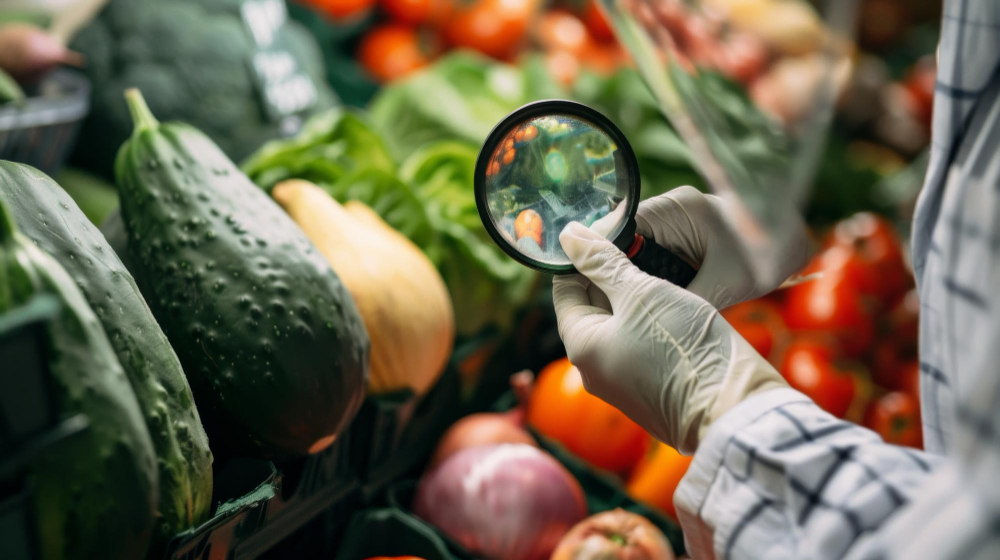Understanding Food Safety Standards for Commercial Kitchens in Nigeria

Why Food Safety Matters in Nigerian Commercial Kitchens
Food safety is not just about avoiding fines—it’s about protecting public health and building trust with customers. Nigeria’s food industry, valued at over ₦1 trillion, faces significant challenges, including poor hygiene practices, inadequate regulation enforcement, and power outages that disrupt refrigeration. Incidents like the 2017 outbreak in Kogi State, where 62 people died from contaminated meat and water, highlight the risks of lax standards. For small restaurants and bakeries, adhering to food safety standards ensures compliance with the National Agency for Food and Drug Administration and Control (NAFDAC), prevents outbreaks, and enhances customer loyalty in competitive markets like Lagos and Abuja.
Nigeria’s Food Safety Regulatory Framework
Nigeria’s food safety system involves multiple agencies across federal, state, and local levels, coordinated by the National Policy on Food Safety. Key players include:
-
- National Agency for Food and Drug Administration and Control (NAFDAC): Regulates food quality, conducts tests, and enforces compliance with standards for production, storage, and distribution.
-
- Federal Ministry of Health (FMOH): Formulates policies and guidelines, monitors foodborne diseases, and ensures hygienic food and water.
- Standards Organisation of Nigeria (SON): Sets quality standards for food production and equipment.
- Consumer Protection Council (CPC): Addresses consumer complaints about unsafe food.
Key laws include the Food and Drug Act (2004), NAFDAC Act, and Public Health Ordinance (1958). The National Policy on Food Safety aims to harmonize these regulations, promote Hazard Analysis and Critical Control Point (HACCP) systems, and reduce foodborne illness risks. However, enforcement is often weak due to overlapping roles and limited resources, making it critical for kitchen operators to take proactive steps.
Key Food Safety Standards for Commercial Kitchens
To comply with NAFDAC and international standards like HACCP, commercial kitchens in Nigeria must follow these practices:
-
Proper Hand Hygiene
Handwashing is the cornerstone of food safety, reducing cross-contamination risks. Staff must wash hands with soap for at least 20 seconds before handling food, after touching raw ingredients, or after using the restroom.
Equipment Needed: Install a dedicated handwashing station with hot and cold running water, soap dispensers, and disposable towels. Find these at Afess.ng. -
Prevent Cross-Contamination
Use separate cutting boards, utensils, and containers for raw meats, vegetables, and cooked foods to avoid bacterial spread (e.g., Salmonella, E. coli).
Equipment Needed: Color-coded cutting boards and stainless steel prep tables, available at Afess.ng. -
Temperature Control
Store foods at safe temperatures (0-4°C for refrigeration, -18°C for freezing) and cook to proper internal temperatures (e.g., 75°C for poultry). Use food thermometers to verify compliance.
Equipment Needed: Energy-efficient refrigerators and freezers from Afess.ng to maintain consistent temperatures during power outages. -
Regular Cleaning and Sanitization
Clean surfaces, equipment, and utensils daily to remove grease, grime, and bacteria. Implement a cleaning schedule to ensure no area is overlooked.
Equipment Needed: Commercial dishwashers and sanitizing solutions from Afess.ng. -
Proper Waste Management
Dispose of food waste regularly to prevent pest infestations and bacterial growth. Use sealed bins and clean them frequently.
Equipment Needed: Heavy-duty refuse sacks and dustbins from Afess.ng.
Navigating Nigeria’s Food Safety Challenges
Nigeria’s commercial kitchens face unique hurdles that complicate food safety compliance:
-
- Power Outages: Frequent blackouts disrupt refrigeration, risking spoilage. Use generator-compatible fridges and freezers to maintain safe temperatures.
- Poor Hygiene Practices: Studies show 97% of foodborne illnesses in food service settings stem from poor personal hygiene. Train staff on proper handwashing and food handling.
-
- Weak Enforcement: NAFDAC’s limited inspection capacity means kitchens must self-regulate. Implement HACCP principles to stay proactive.
-
- Cultural Practices: Some communities store food in advance or attribute food poisoning to spiritual causes, hindering safety efforts. Educate staff to counter these misconceptions.
-
- Unhygienic Supply Chains: Contaminated ingredients at markets require thorough washing and inspection.
Essential Equipment for Food Safety Compliance
To meet NAFDAC and HACCP standards, equip your kitchen with:
- Refrigerators and Freezers: Energy-efficient models to maintain safe temperatures during outages.
- Handwashing Stations: With hot/cold water and soap dispensers for hygiene.
- Food Thermometers: To ensure proper cooking and storage temperatures.
- Stainless Steel Surfaces: Easy-to-clean prep tables and sinks.
- Waste Management Solutions: Durable bins to prevent pest issues.
Find these at Afess.ng or Jiji.ng, with prices starting at ₦5,000 for smaller items like thermometers.
Where to Buy Food Safety Equipment in Nigeria
Equip your kitchen with reliable tools from:
- Online Marketplaces: Jiji.ng offers refrigerators, thermometers, and more, starting at ₦5,000.
- Specialized Suppliers: Afess.ng provides commercial-grade equipment with expert support and delivery.
Contact Afess.ng via their WhatsApp chat for personalized quotes.
Your Food Safety Compliance Checklist
Use this checklist to ensure your kitchen meets standards:
- Install handwashing stations with soap and running water.
- Use separate tools for raw and cooked foods.
- Maintain refrigeration at 0-4°C and freezers at -18°C.
- Implement a daily cleaning schedule for surfaces and equipment.
- Dispose of waste regularly in sealed bins.
- Train staff on HACCP and NAFDAC standards.
- Monitor supplier quality and wash ingredients thoroughly.
Conclusion: Build a Safe and Trusted Kitchen
Adhering to food safety standards in Nigeria’s commercial kitchens protects your customers, ensures NAFDAC compliance, and strengthens your brand. By investing in proper equipment and training, you can overcome local challenges and serve safe, delicious meals. Ready to equip your kitchen? Visit Afess.ng for high-quality solutions or browse Jiji.ng for affordable options. Keep your kitchen safe and thriving, start today!